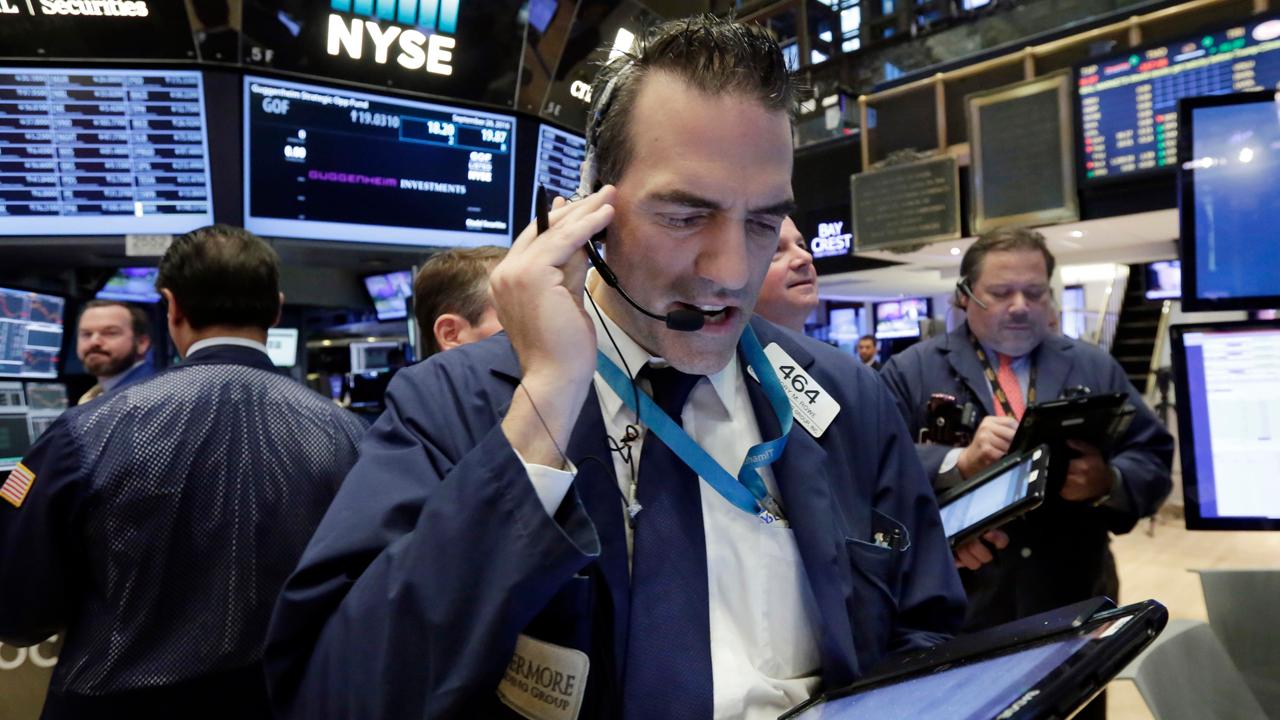Dow slips 219 points as Trump signals missile strike on Syria
The Dow Jones Industrial Average posted a triple-digit decline on Wednesday as President Donald Trump worked to rally support for a possible military strike on Syria after an alleged gas attack, heightening tensions with Russia.
The Dow slipped 218.55 points, or 0.90%, to 24,189.45. The S&P 500 fell 14.68 points, or 0.55%, to 2,642.19. The Nasdaq Composite was down 25.27 points, or 0.36%, at 7,069.03.
In a Twitter missive, Trump warned Russia over its support for Syrian President Bashar al-Assad, saying missiles “will be coming” in response to a chemical attack that reportedly killed 70 people and injured 500 more.
Stocks were also weighed down after explosions over Saudi Arabia's capital, Riyadh. Saudi air defense forces intercepted missiles over the city, according to Al Arabiya, a kingdom-owned media outlet. Reports said Yemen’s Houthis fired at least three ballistic missiles in an attempted attack on Saudi Arabia’s defense ministry and a Saudi Aramco oil distribution facility.
Oil rose to its highest level since 2014, reflecting concerns that tensions in the Middle East could impact supplies. West Texas Intermediate crude rose 2% to $66.82 a barrel.
Safe-haven assets such as gold and Treasuries were higher. Gold rose for a fourth day to a two-month high. The yield on the 10-year note fell to 2.781% in recent trading. Yields fall as prices rise.
Financial and telecommunications stocks were the biggest drags on the market, while energy stocks climbed amid higher oil prices.
Facebook shares advanced on the second day of CEO Mark Zuckerberg’s testimony in Congress. The stock rose 0.78% to $166.32, its highest level since late March.
| Ticker | Security | Last | Change | Change % |
|---|---|---|---|---|
| FB | PROSHARES TRUST S&P 500 DYNAMIC BUFFER ETF | 42.31 | -0.05 | -0.11% |
| TSLA | TESLA INC. | 411.71 | +0.39 | +0.09% |
| GOOGL | ALPHABET INC. | 302.85 | -0.48 | -0.16% |
The Federal Reserve released the minutes from its policy-setting meeting in March. Officials expect to quicken the pace of interest rate hikes over the next few years, as inflation moves closer to the central bank’s 2% target. The Fed also appeared wary of a trade war, with participants saying retaliation to U.S. tariffs would be headwind for the U.S. economy.
On Tuesday, U.S. stocks surged following a speech by Chinese President Xi Jinping in which he said he would open the country's economy and lower import tariffs on products, including cars. The Dow gained 429 points in response.




















